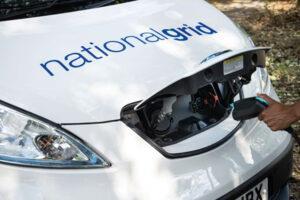
A battery electric vehicle (BEV) “boom” led to deliveries of electric CVs increasing by 70% last month, but concerns remain about the UK’s charging infrastructure.
Figures from the SMMT showed that BEV deliveries now have a market share of 4.4%, up from 2.9% in 2021.
The SMMT said that with a growing number of zero emission van models coming to market, more operators were taking advantage of the lower taxation, purchase incentives and zone charging exemptions.
As a result, BEV volumes increased by 52.9% year on year from January to September.
Overall, the LCV market rose 10.8% in September, marking the first month of growth this year. The SMMT said medium and large vans drove the uplift, but it was bolstered by BEV sales.
Jon Lawes, MD at fleet leasing firm Novuna Vehicle Solutions, said demand for EVs had been a positive takeaway for the motor industry in 2022, but he added: “Welcome as it is, the BEV boom has raised big questions about the UK’s charging infrastructure.
“The ratio of electric cars to public charge points has risen from 5:1 in 2019, to 15:1 today, and unless we see some meaningful progress on the government’s EV infrastructure strategy, and soon, we could be facing a ratio closer to 54:1 by the end of this decade.”
Mike Hawes, SMMT chief executive, said: “While the full recovery of Britain’s new van market remains some way off, September growth reflects van makers’ efforts to fulfil strong order books despite a paucity of supply.
“High energy costs and wider economic uncertainty, however, will undermine operator confidence, meaning that long-term measures to provide stability and growth are needed if the sector – so often a bellwether for business activity – is to return to its past success.”













